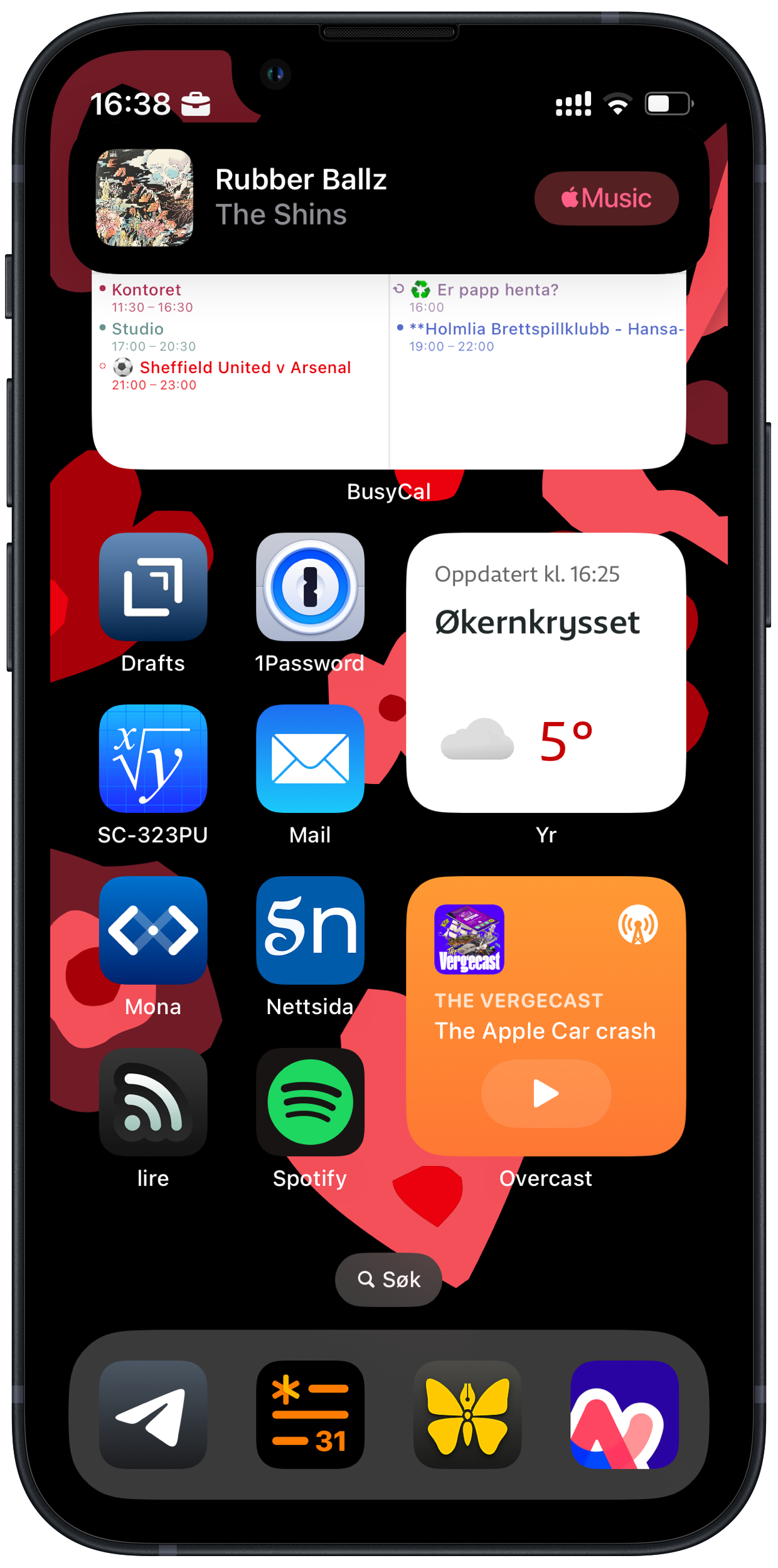Why I Think Apple’s Fine is Fine
Today, Apple got hit with a €1.84 billion fine — for anticompetitive behaviour in the music streaming market.
I’ve seen people saying this doesn’t make sense, as Spotify has a larger market share than Apple Music — but that’s not what the complaint is about. The thing is, that Apple has used their size, ecosystem and general market position to give Apple Music a larger market share than they would’ve gotten if they had to compete fairly. Apple is about 80 times the size of Spotify. To put that into perspective, that’s about the same ratio as a rhino compared to a golden retriever. 1
Here are some of the smaller things Apple are doing:
- When I hit «Play» on my Mac (if nothing is playing), the OS opens Apple Music — even though I’ve never used it.
- They throw trials at customers who buy their hardware — and they even put ads for it in the freaking Settings app on my phone!
- When I use the song recognition button (Shazam) in Control Center, it only gives me an Apple Music link.

But that’s not the main reason for the complaint.
Why Spotify «can’t afford» In-App Purchasing
Let’s do some simple math:
Spotify and Apple Music are each others main rivals, and they both cost about $10 per month and pay about $7 of that to artists. 2 This gives each company about $3 in margins, which is the same amount that Apple wants from Spotify! Is it that hard to see how that makes it tough for Spotify to compete?
Now, Spotify could increase the price to still get some margins. This would give the following breakdown:
- Spotify’s increased price: $14
- To Apple: $4.2
- To artists: $7
- Spotify’s Margin: $2.8
As you can see, they would pay more to their main competitor than what their own margin is, and they would need to charge way more than that competitor. 3
Try to imagine that situation in whatever business you’re in… Like, if Bob’s Burgers, competing with Jimmy Pesto’s Pizzeria, not only had to pay 30% of their revenue, that the Jimmy Pesto didn’t have to pay — it was to Jimmy Pesto!
What the fine really is about
Apple says «but Spotify doesn’t even pay us anything!» — but that’s not relevant here. 4
The last sectioned aimed to explain why Spotify has to operate outside of In-App Purchases — and the fine is about how Apple is making that experience terrible.
For a decade, Apple abused its dominant position in the market for the distribution of music streaming apps through the App Store. They did so by restricting developers from informing consumers about alternative, cheaper music services available outside of the Apple ecosystem. This is illegal under EU antitrust rules, so today we have fined Apple over €1.8 billion.
- Margethe Vestager, Executive Vice-President in charge of competition policy
Apple saying «but we changed our anti-steering this January, so we shouldn’t get this fine» is as good a defence as someone defending a DUI by telling the judge that their sober now.
And remember, if Spotify provides a link through the new anti-anti-steering API, they still have to pay Apple 27% — and we’re back to Bob’s Burgers.
Apple is also saying «developers compete on a level playing field», which might be true if you’re talking Third-Party Developer vs. Third-Party Developer (they’re at least giving fewer sweetheart deals than Google). But this complaint is about Apple vs. Third-Party Developers — and they don’t make any arguments about that.
I don’t love the DMA.
The fact that even if you’re the most profitable company in the world, you still have a «duty» to not only upheld those profits, but increase them, is one of the worst things about our financial system. This profitmania has led Apple to go in hard for that sweet service revenue. And that has lead to stuff like them going into more markets than they need to, and keeping a 30% cut that was set at a time when the App Store wasn’t even meant to turn a profit.
I believe the best version of iOS, and the App Store, would’ve been one where Apple is a beneficial dictator. One that didn’t feel the need to both take a third of developers revenue, while also competing directly with them. But when they’re just a dictator, I get why regulators are pushing for change.
-
People keep forgetting scale like this when discussing Xbox (Microsoft) vs. Playstation (Sony) as well. But the overall power a company has, is very relevant when discussing anti-trust, so you shouldn’t be blinded by just looking at a small part of the giant. ↩︎
-
This is too little, and it’s distributed poorly - but that’s a separate discussion! ↩︎
-
Heck, Apple could even use some of the payment from Spotify to decrease their price even lower than $10. ↩︎
-
I think Spotify would’ve loved to be able to use the App Store payment system, if Apple charged a fair commission, had reasonable policies, and didn’t unfairly compete. ↩︎

